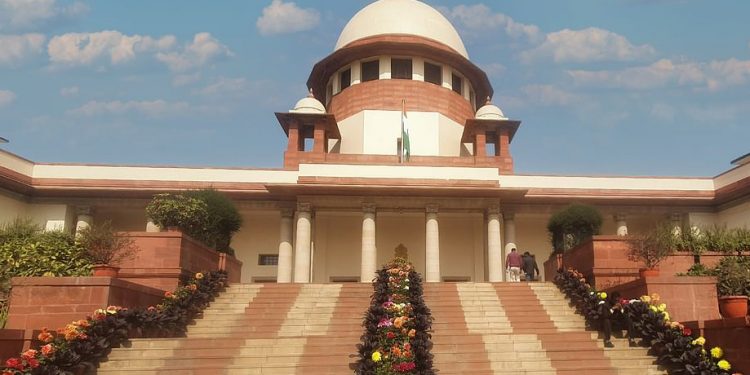The Supreme Court ruled on Tuesday that only the limitations outlined in Article 19(2) of the Constitution may be placed on a citizen’s right to free expression, emphasising that such limitations are all that exist.
New Delhi: The Supreme Court ruled on Tuesday that only the limitations outlined in Article 19(2) of the Constitution may be imposed on a citizen’s right to free expression, emphasising that such limitations are thorough.
The decision was handed down by a five-judge constitution bench, which also included Justices B.R. Gavai, A.S. Bopanna, V. Ramasubramanian, and B.V. Nagarathna. But Justice Nagarathna issued a different ruling.
Reading the majority ruling, Justice Ramasubramanian stated that the only limitations on free expression that may be imposed are those listed in Article 19(2) of the Constitution.
“There are several justifications provided in Article 19(2) for limiting the right to free expression… No further limitations not contained in Article 19 (2) shall apply to the use of the privilege granted by Article 19(1)(a),” declared Justice Ramasubramanian.
The highest court ruled that a minister cannot indirectly blame the government for a remark they make, and that the minister is responsible for the speech.
The constitutional bench decision determined whether limitations can be placed on a public official’s freedom of speech and expression.
Asserting that hate speech undermines equality and fraternity at its core, Justice Nagarathna stated that basic obligations might be invoked to stifle disparaging speech and foster peace among citizens.
The court cannot impose any more or additional limits on the basic right of free expression of such public officials, according to Justice Nagarathna.
Later in the day, a comprehensive ruling in the case will be uploaded.
Azam Khan, a minister in Uttar Pradesh at the time, made a comment regarding victims of gang rape that set off the case. The top court was hearing a petition from a man asking for the transfer of the case to Delhi after his wife and kid were reportedly gang-raped in July 2016 on a highway close to Bulandshahr. In addition, the appeal demanded that a case be filed against Khan in relation to his contentious claim that the gang-rape case was a “political scheme.”
A three-judge panel submitted the case to the constitution bench in October 2017 to address a number of concerns, including whether a public official or a minister can use their right to free speech while expressing opinions on delicate subjects.







